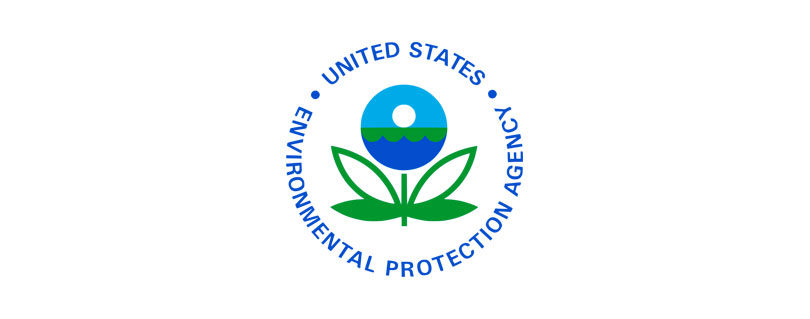Biden-Harris Administration Announces New Cleanup Project in Georgia
Publilshed by the U.S. Environmental Protection Agency (EPA)
ATLANTA (February 10, 2023) — Today, the U.S. Environmental Protection Agency (EPA) announced the second wave of approximately $1 billion in funding from President Biden’s Bipartisan Infrastructure Law to start new cleanup projects at 22 Superfund sites, including the Westside Lead Superfund site in Atlanta, and expedite over 100 other ongoing cleanups across the country.
Thousands of contaminated sites exist nationally due to hazardous waste being dumped, left out in the open, or otherwise improperly managed, including in manufacturing facilities, processing plants, landfills, and mining sites. Superfund cleanups help transform contaminated properties and create jobs in overburdened communities, while repurposing these sites for a wide range of uses, including public parks, retail businesses, office space, residences, warehouses, and solar power generation. In addition, these sites can support natural areas, parks, and recreation facilities, providing greenspace and safe places for families to play outside.
“Thanks to President Biden’s historic investments in America, we are moving faster than ever before to progress clean up at contaminated sites – from manufacturing facilities to landfills – in communities across the country,” said EPA Administrator Michael S. Regan “But our work is not yet finished – we’re continuing to build on this momentum to ensure that communities living near many of the most serious uncontrolled or abandoned releases of contamination finally get the investments and protections they deserve.”
“Cleaning up Superfund sites is a top priority for EPA,” said EPA Region 4 Administrator Daniel Blackman. “Thanks to the historic Bipartisan Infrastructure Law, we can clean up contaminated sites that threaten communities, breathe new life into these sites and turn them from a liability into community assets.”
“People shouldn’t have to worry if their land will make them sick. The funding secured through the Bipartisan Infrastructure Law to clean up the Westside Lead Superfund site will help children in English Avenue and Vine City live and play without risk of lead poisoning,” said Congresswoman Nikema Williams (GA-05). “I look forward to working with the EPA to finish the job for Atlanta families.”
“The Georgia Environmental Protection Division will continue to work with and support EPA’s efforts to identify and remediate lead contaminated soils at the Westside Lead site,” said Georgia Environmental Protection Division Director Richard Dunn. “The additional BIL funding will ensure the clean-up activities are completed quickly and efficiently, reducing the risk of exposure to families in the area.”
The Westside Lead site was added to the National Priorities List (NPL) on March 16, 2022. The Bipartisan Infrastructure Law funds will be used at the site to excavate and dispose of lead-contaminated soil at residential properties, including places where children live and play. Young children are at most risk for possible lead poisoning. This funding will allow EPA to address legacy lead contamination and will deliver lasting public health protections for this community burdened by contamination from past industrial activities.
The $1 billion investment announced today is the second wave of funding from the $3.5 billion allocated for Superfund cleanup work in the Bipartisan Infrastructure Law. With the first wave of funding announced in December 2021, EPA deployed more than $1 billion for cleanup activities at more than 100 Superfund National Priorities List sites across the country. Thanks to this historic funding, EPA started 81 new cleanup projects in 2022, including projects at 44 sites previously on the backlog. By starting four times as many construction projects as the year before, EPA is aggressively bringing more sites across the country closer to finishing cleanup. For example, in Evansville, Indiana, EPA continued to reduce exposures to lead and arsenic in soil in the neighborhoods of the Jacobsville Neighborhood Contamination site by starting the next phase of cleaning up contaminated residential soils.
In addition to funding cleanup construction work, this investment is enabling EPA to increase funding for and accelerate essential work needed to prepare sites for construction and ensure that communities are meaningfully involved in the cleanup process. In 2022, EPA more than doubled its spending for Superfund pre-construction activities like remedial investigations, feasibility studies, remedial designs, and community involvement.
EPA is committed to carrying out this work in line with President Biden’s Justice40 Initiative by advancing environmental justice and incorporating equity considerations into all aspects of the Superfund cleanup process. This will help ensure that historic and ongoing impacts of contamination on overburdened communities are fully considered and addressed. Out of the 22 sites to receive funding for new cleanup projects, 60% are in communities with the potential for environmental justice concerns based on data from EJSCREEN, an environmental justice mapping and screening tool that provides EPA with a nationally consistent dataset and approach for combining environmental and demographic socioeconomic indicators.
Background:
In 1980, Congress passed the Comprehensive Environmental Response, Compensation and Liability Act, known as Superfund. The law gave EPA the authority and funds to hold polluters accountable for cleaning up the most contaminated sites across the country. When no viable responsible party is found or cannot afford the cleanup, EPA steps in to address risks to human health and the environment using funds appropriated by Congress, like the funding provided by the Bipartisan Infrastructure Law.
For more information on each site, please visit: https://www.epa.gov/superfund/superfund-sites-new-construction-projects-receive-bipartisan-infrastructure-law-funding
To see highlights from the first year of Bipartisan Infrastructure Law funding at Superfund sites, please visit: https://www.epa.gov/infrastructure/cleaning-superfund-sites-highlights-bipartisan-infrastructure-law-funding
For more information about EPA’s Superfund program, please visit: https://www.epa.gov/superfund
Read the full article at: https://www.epa.gov/newsreleases/biden-harris-administration-announces-new-cleanup-project-georgia


